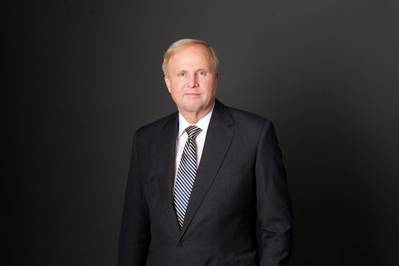The future of Bob Dudley at the head of BP seems untarnished by shareholders' unusual rejection of his pay package as 99.6 percent of them also backed his re-appointment and trust him to lead the company through a period of weak oil prices.
For the 60-year-old American, who was given the top job following the 2010 Deepwater Horizon oil spill, the vetoing of his $20 million compensation package is the first major faux pas in his time as chief executive.
Such a shareholder revolt would claim many a CEO's scalp but Dudley seems unlikely to be removed as investor confidence in his leadership remains strong.
"I'm not a fan of change for the sake of change," said Robert Smithson, fund manager at THS Partners, whose fund is a BP investor and who voted against the remuneration package.
"Unless there is a really compelling reason of somebody else who can do a better job I think it's probably better he stays."
Dudley's record in protecting the company following the Gulf of Mexico explosion won him respect among investors.
His plan to slim down the company to find capital to pay its more than $50 billion settlement bill from the disaster went down well with shareholders and analysts.
By coincidence it also helped BP prepare for the oil price collapse, as the company began cutting costs long before its peers.
The trust he has earned puts him in good stead to start finding a route back to growth amid weak market conditions.
Effectively, shareholders want Dudley to continue leading BP but at a cheaper price.
SEVERAL MORE YEARS
The promotion of Dudley's long-time ally Lamar McKay to deputy chief executive in February could have been seen as a preparation for Dudley's exit but sources close to him say he wants to stay in the job.
"I'd give him several more years in the job. He certainly doesn't want to become the first American CEO who sold BP. He wants to grow it," said a former senior BP executive, who has known Dudley for many years.
The British government last year signalled it would fiercely oppose any acquisition of BP by a rival.
Many BP shareholders expressed discontent with the fact that executives' remuneration was not aligned with the company's performance or investor returns and the issue could still haunt Dudley.
Norway's sovereign wealth fund, BP's third-biggest investor, said it voted in favour of the remuneration resolution at Thursday's meeting.
But the $863 billion fund added that it questioned the role of BP's remuneration committee and its use of discretion.
"We have addressed some concern related to the company's remuneration and will continue to follow up through direct involvement," a spokeswoman said.
Ann Dowling, the head of BP's remuneration committee, defended BP's pay policy and highlighted the fact that 96 percent of investors had approved it in 2014.
"All are agreed that this has been a very good year for Bob and the team," she said.
Despite the vote, Dudley retains his 2015 package but Dowling has vowed to make changes to this year's remuneration policy and to engage with shareholders. She will report changes at next year's annual meeting.
(By Karolin Schaps; Additional reporting by Dmitry Zhdannikov and Stine Jacobsen; editing by Giles Elgood)

